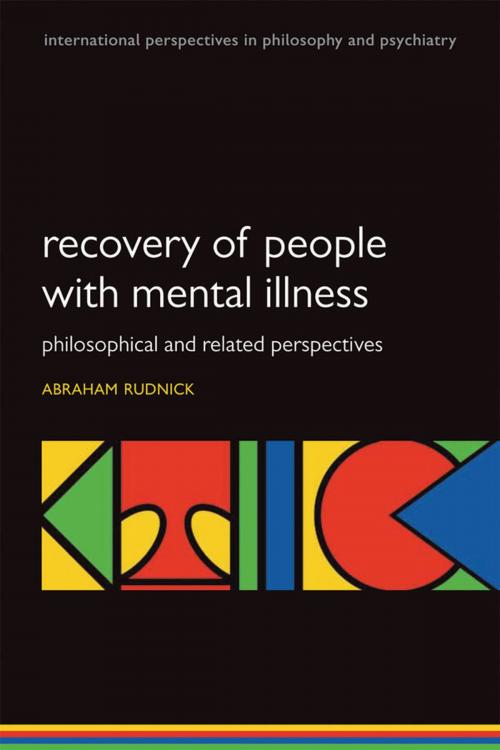Recovery of People with Mental Illness: Philosophical and Related Perspectives
Nonfiction, Health & Well Being, Medical, Specialties, Psychiatry, Religion & Spirituality, Philosophy| Author: | ISBN: | 9780191655005 | |
| Publisher: | OUP Oxford | Publication: | August 30, 2012 |
| Imprint: | OUP Oxford | Language: | English |
| Author: | |
| ISBN: | 9780191655005 |
| Publisher: | OUP Oxford |
| Publication: | August 30, 2012 |
| Imprint: | OUP Oxford |
| Language: | English |
It is only in the past 20 years that the concept of 'recovery' from mental health has been more widely considered and researched. Before then, it was generally considered that 'stability' was the best that anyone suffering from a mental disorder could hope for. But now it is recognised that, throughout their mental illness, many patients develop new beliefs, feelings, values, attitudes, and ways of dealing with their disorder. The notion of recovery from mental illness is thus rapidly being accepted and is inserting more hope into mainstream psychiatry and other parts of the mental health care system around the world. Yet, in spite of conceptual and other challenges that this notion raises, including a variety of interpretations, there is scarcely any systematic philosophical discussion of it. This book is unique in addressing philosophical issues - including conceptual challenges and opportunities - raised by the notion of recovery of people with mental illness. Such recovery - particularly in relation to serious mental illness such as schizophrenia - is often not about cure and can mean different things to different people. For example, it can mean symptom alleviation, ability to work, or the striving toward mental well-being (with or without symptoms). The book addresses these different meanings and their philosophical grounds, bringing to the fore perspectives of people with mental illness and their families as well as perspectives of philosophers, mental health care providers and researchers, among others. The important new work will contribute to further research, reflective practice and policy making in relation to the recovery of people with mental illness.It is essential reading for philosophers of health, psychiatrists, and other mental care providers, as well as policy makers.
It is only in the past 20 years that the concept of 'recovery' from mental health has been more widely considered and researched. Before then, it was generally considered that 'stability' was the best that anyone suffering from a mental disorder could hope for. But now it is recognised that, throughout their mental illness, many patients develop new beliefs, feelings, values, attitudes, and ways of dealing with their disorder. The notion of recovery from mental illness is thus rapidly being accepted and is inserting more hope into mainstream psychiatry and other parts of the mental health care system around the world. Yet, in spite of conceptual and other challenges that this notion raises, including a variety of interpretations, there is scarcely any systematic philosophical discussion of it. This book is unique in addressing philosophical issues - including conceptual challenges and opportunities - raised by the notion of recovery of people with mental illness. Such recovery - particularly in relation to serious mental illness such as schizophrenia - is often not about cure and can mean different things to different people. For example, it can mean symptom alleviation, ability to work, or the striving toward mental well-being (with or without symptoms). The book addresses these different meanings and their philosophical grounds, bringing to the fore perspectives of people with mental illness and their families as well as perspectives of philosophers, mental health care providers and researchers, among others. The important new work will contribute to further research, reflective practice and policy making in relation to the recovery of people with mental illness.It is essential reading for philosophers of health, psychiatrists, and other mental care providers, as well as policy makers.















